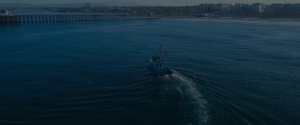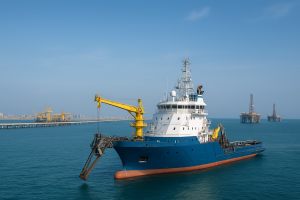Marine contracting is a combination of accuracy and uncertainty. There is nothing like smooth sailing in a sea project, as nature should be taken into consideration, logistic issues must be solved, and technical demands must be met. Then, how does a marine services company meet the service standards? Here are 5 challenges in marine contracting.
1-Weather Always Wins
A strong atmosphere, heavy water, and sea tide may threaten equipment damage and the postponement of work for marine engineering services in Kuwait. The most successful teams depend on forecasting systems, live information, and multiple time schedules. Installing weather buffers at the back of the timelines can be a great advantage in delaying the project, as opposed to delivering it on time despite the weather surprises.
2-Logistics Takes Precision
The transportation of equipment, materials, and people to and from marine sites is a business that requires organization. A delayed delivery may interfere with the project. The way a marine services company can overcome it is by paying attention to vendors with whom they work, so that there is a clear and understandable channel of communication throughout the team.
3-Regulations Need Foresight
Marine projects happen under the most strenuous environmental regulations. Both time and expertise are required to use permits, compliance audits, and continuous monitoring. The most prudent contractors are those who are always ahead of everyone, as they begin by being green from the outset, collaborate with regulators, and adjust themselves in case any alterations in specifications emerge in the course of construction.
4-Navigating Strict Environmental Standards
Marine development projects are placed under some of the most stringent environmental standards. They are not to be ignored. Permits, compliance audits, and continuous checking require time and capability. Either by being sustainable, communicating with regulators, or being prepared if new policies emerge, contractors have been keeping up with the game significantly.
5-Skilled Labor Is Harder to Find
Labor can be hard to find. It is a niche where skills like underwater welding, offshore rigging, or working with custom equipment are required. Lack of professionals capable of handling the project often delays progress. From a long-term perspective, it is training, cooperation with technical schools, and providing the crews with competitive packages. Companies that make early investments in talent are prompted to have an easier and more effective implementation in the future.
Marine locations might be isolated, dispersed, and difficult to synchronize. This communication breakdown will affect safety, timing, and outcome. In different crews on platforms, barges, and docks, updates may be lost or fall behind. The trick is to have systems that run in real time, like mobile applications, satellite communications, and ground leaders. By making the workflow smooth, people are updated with the flow and are on the same page.
Marine contracting is not impossible but is rather complex. As long as there was planning, a good team, and the possibility to adjust, even the stormiest waters were tamed. It does not imply keeping things from going wrong in this department, but it suggests learning to solve the problems as they come and keeping up with the system.





